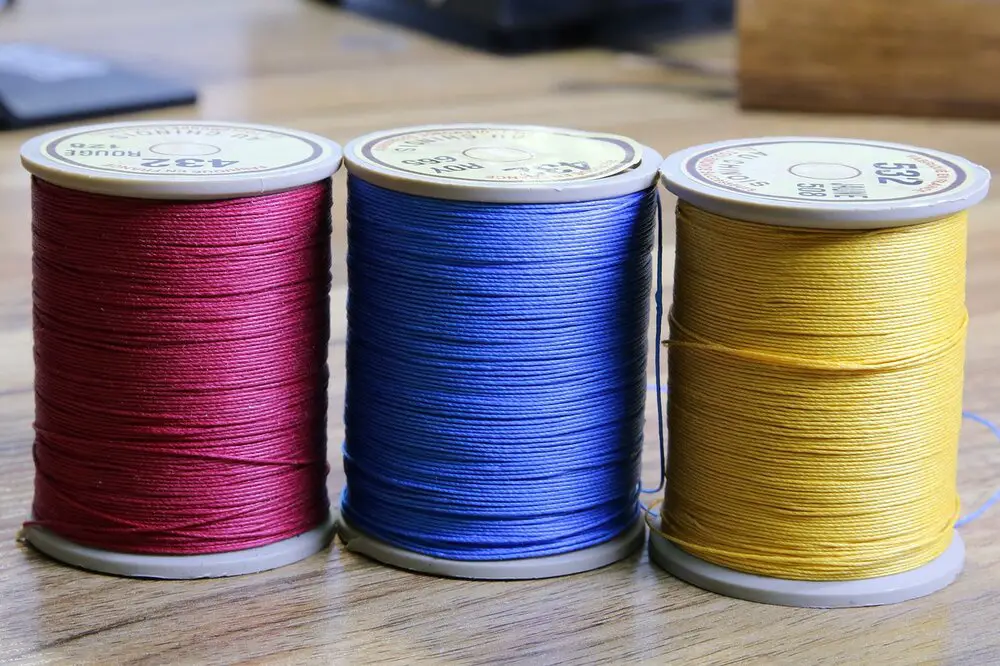In the past, tech with fashion didn’t make sense. Simply because there wasn’t any way in which both seemed connected. Now, tech is assisting fashion at every step. Be it designs or manufacturing, tech can’t be separated from fashion.
Take the example of Beacon Technology. In the early 2000s, visiting a store virtually was a distant dream. However, Elle, a reputable worldwide women’s fashion magazine made it a reality in 2015. Driving around 500,000 retail store visits, Elle was the middleman between customers who were lying on their couches and roaming inside retail stores.
However, that wasn’t the first or the last application of technology in the fashion industry. With each passing day, the fashion industry is evolving.
This article belongs to tech and fashion. We’re going to explore how tech is actively changing the fashion industry. To know all the “whys”, stick with us as we start.

Making clothes used to be a troublesome task.
Why?
Simply because from designing to stitching, every step demanded pinpoint accuracy.
Fashion involves clothes, and clothes are made of fabric. Fabric, on the other hand, doesn’t come easy. However, technology has played a role in cleansing the whole process.
How?
Now, more brands use sustainable materials to design their clothes. To name a few, fiber, fiber crop, and bamboo fabric are getting popular among the brands. Simply because they’re cheap and found in abundance.
Plus, these materials suffice the fashion sense brands want. Being highly elastic, such materials can be fine-tuned in flashy clothes.
So yes, it’s the technology that paved the way for brands to make the process neat and clean.
Is there anything left untouched by social media? No, there isn’t. More importantly, social media is too, an offshoot of tech.
Directly, or indirectly, social media influences fashion trends. People, using their devices as swords, don’t hold back from registering their opinions.
Now, more than ever, customers hold the power to dictate the designs they want to see.
Brands, having millions of followers, pay heed to their customer’s opinions. As a result, customers get what they want, and brands, cash on their customers.
Moreover, social media has become a key marketing tool for the brands. Take Instagram for example. Brands actively post their catalog on the social sites.
Results?
People get to see their catalog, and brands achieve their marketing goals.
So, it seems like social media has created a win-win situation for everyone involved in the loop.
E-commerce has changed the landscape for everyone, including fashion brands.
How?
They’ve become more accessible than ever. Now, people living in the remotest areas can visit online stores, and buy, and receive top products at their doorsteps.
Wondering what’s in it for the fashion brands?
Well, a social media presence complements the e-commerce stores. In return, brands get wider coverage around the world. Moreover, the profit margins also surge with the help of e-commerce stores. In the context of the e-commerce boom, it’s crucial to recognize how enterprise fulfillment systems are revolutionizing the way fashion brands manage their online sales. Harnessing technology not only in creating and marketing clothes but also in ensuring that orders reach customers efficiently is vital. To see how integration of advanced technologies like automation, data analytics, and real-time visibility can foster a smooth operational flow from warehouse to doorstep, we must explore enterprise fulfillment services optimized for today’s fast-paced fashion industry.
Take the example of Louis Vuitton. Collecting an annual revenue of $369.7m from online sales in 2022, it is donning the online clothes market.
Moreover, if you’re trying to connect with your favorite brands online, but can’t, simply check your internet connection.
Sometimes, an internet connection, instead of complementing the online experience, becomes a hurdle. To be carefree and enjoy online shopping, consider switching to Cox.
Cox provides a top-notch internet connection with rapid speeds around the country. Moreover, with millions of free hotspot zones, you can stay connected on the go.
To avail their service, visit Cox’s website today. Catering to 42 million Spanish speakers in the U.S., they can connect to Spanish customer support via Cox servicio al cliente en español.
Virtual technology has been a boon for the fashion industry. With unmatched benefits, virtual technology poses different benefits for the brands.
Using AR and 3D Models, people can now visit stores virtually. They can try different items, enabling them to make informed decisions. Moreover, it eliminates the travel expenses to and from the retail store.
From the retailer’s POV, virtual technology can increase their sales. In addition, it can lead stores to provide a better shopping experience to the customers. Furthermore, it reduces the returns as customers can see and feel the products before making a purchase.
Materials such as synthetic fiber have done wonders for the fashion industry. Just as bamboo fiber is organic, synthetic fiber is inorganic. Moreover, 3D printing also finds useful applications in the fashion industry.
Clothes made of plastic and recycled products have also seen the glam of the ramp.
Technology has transformed people’s fashion sense. With unlimited options, people are slaying fashion in every sense. As for brands, they’re more involved in sustainable clothing materials. Moreover, they’re exploring new designs with the ever-advancing tech.
##


